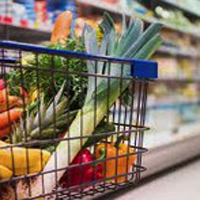Food shopping and food hygiene related knowledge and practices during the COVID-19 pandemic: The case of a developing country

Accepted: 20 May 2021
Supplementary Tables: 61
HTML: 3
All claims expressed in this article are solely those of the authors and do not necessarily represent those of their affiliated organizations, or those of the publisher, the editors and the reviewers. Any product that may be evaluated in this article or claim that may be made by its manufacturer is not guaranteed or endorsed by the publisher.
The aim of this study was to assess the level of food hygiene and food shopping knowledge and practices among residents of Lebanon during the COVID-19 pandemic, and to identify their socio-demographic determinants. A cross-sectional study was conducted through an online questionnaire composed of 13 questions about demographics, and 25 questions related to knowledge and practices in terms of hand maintenance, mask placing, and food shopping. A total of 1337 participants filled the survey. On average, participants scored 73±15 and 67±17% on food hygiene and knowledge and practices, respectively. In terms of best practices by section, they scored 77±22, 51±42, and 65±23% on hand maintenance, mask placing and shopping, respectively. Hand maintenance best practices score was significantly (p<0.05) affected by gender; mask placing best practices score was significantly affected by age and major of study; shopping best practices score was significantly affected by gender; overall best practices score was significantly affected by gender and major of study; food hygiene knowledge score was significantly affected by gender, age, marital status, educational level, and major of study. Food hygiene practices and knowledge scores were significantly (p<0.001) related with a weak correlation coefficient (R=0.114). No study has determined the food hygiene and shopping knowledge and practices during the COVID-19 pandemic in a developing country before.
PAGEPress has chosen to apply the Creative Commons Attribution NonCommercial 4.0 International License (CC BY-NC 4.0) to all manuscripts to be published.


 https://doi.org/10.4081/ijfs.2021.9384
https://doi.org/10.4081/ijfs.2021.9384



